Ethical Principles: A PowerPoint Presentation for ACC30010 Auditors
VerifiedAdded on 2023/06/08
|9
|487
|89
Presentation
AI Summary
This PowerPoint presentation, created for ACC30010 Auditing, explores the fundamental ethical principles that govern the conduct of auditors. It delves into five key principles: integrity, objectivity, professional competence and due care, confidentiality, and professional behavior. The presentation defines each principle and explains its importance in maintaining the credibility and independence of the auditing process. The principle of integrity emphasizes honesty and fairness, while objectivity requires auditors to avoid bias. Professional competence highlights the need for qualified auditors with up-to-date knowledge. Confidentiality protects client information, and professional behavior ensures adherence to regulations and ethical standards. The presentation includes references to academic sources that support the discussion of these principles.
1 out of 9
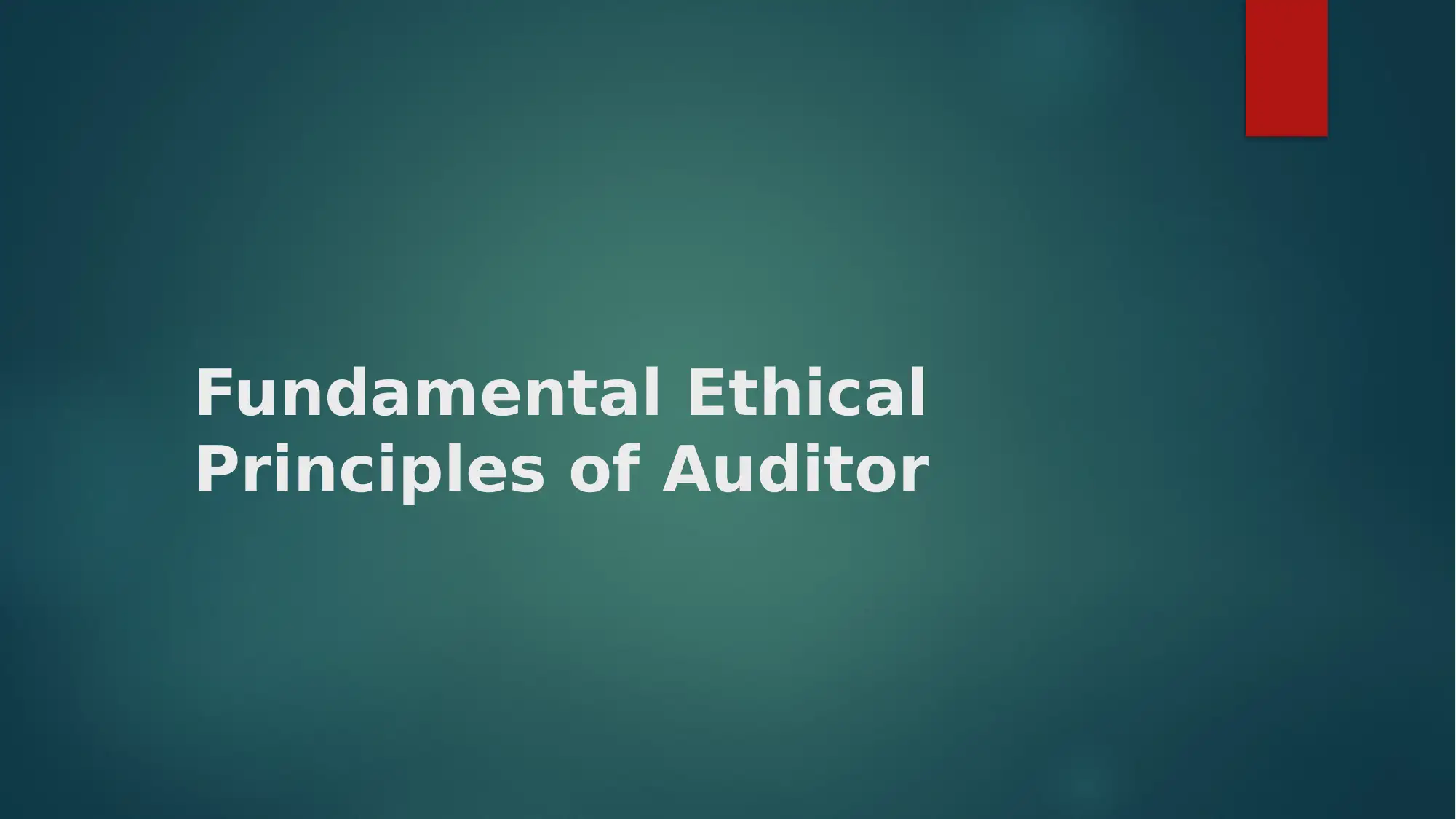
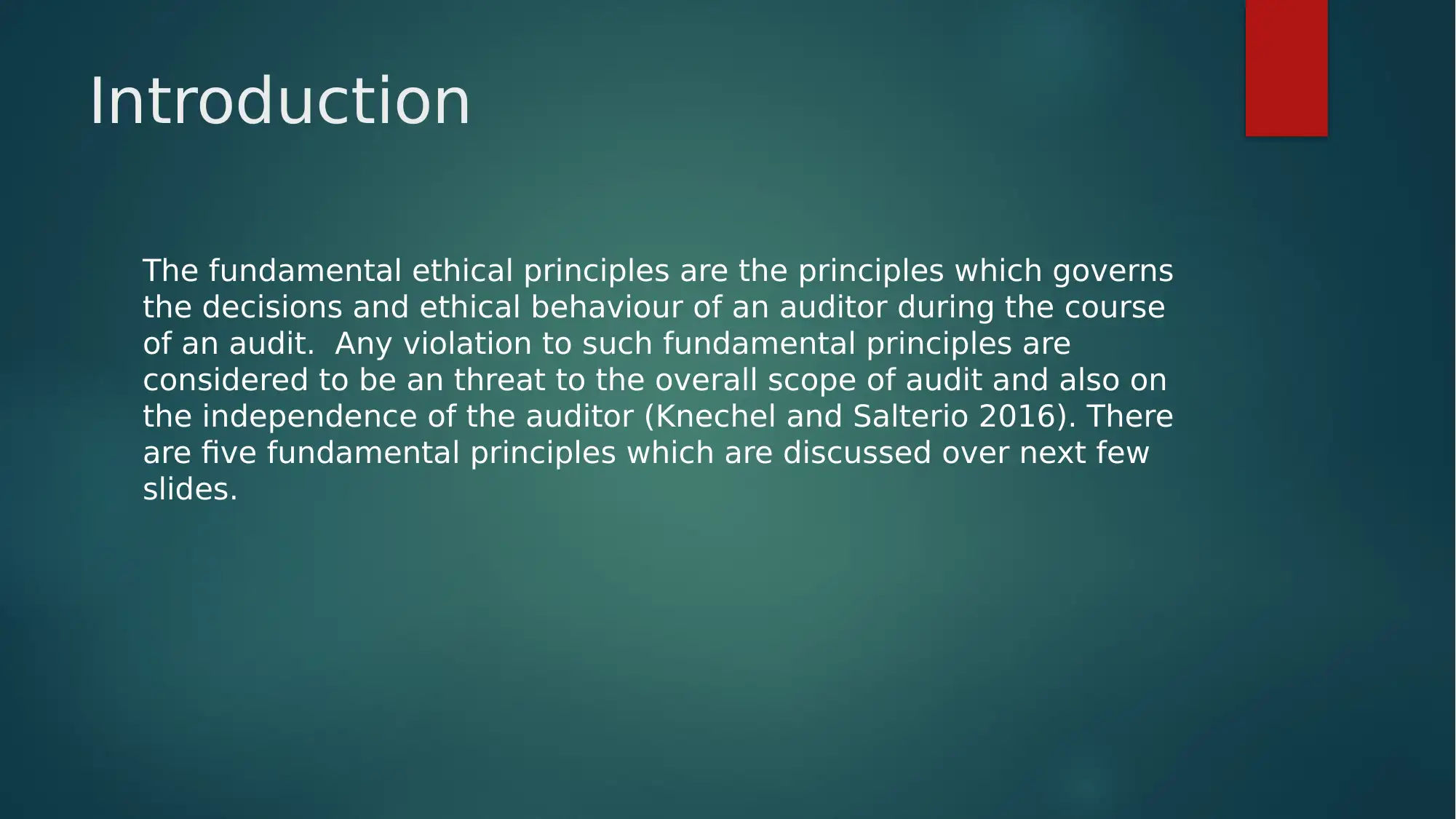
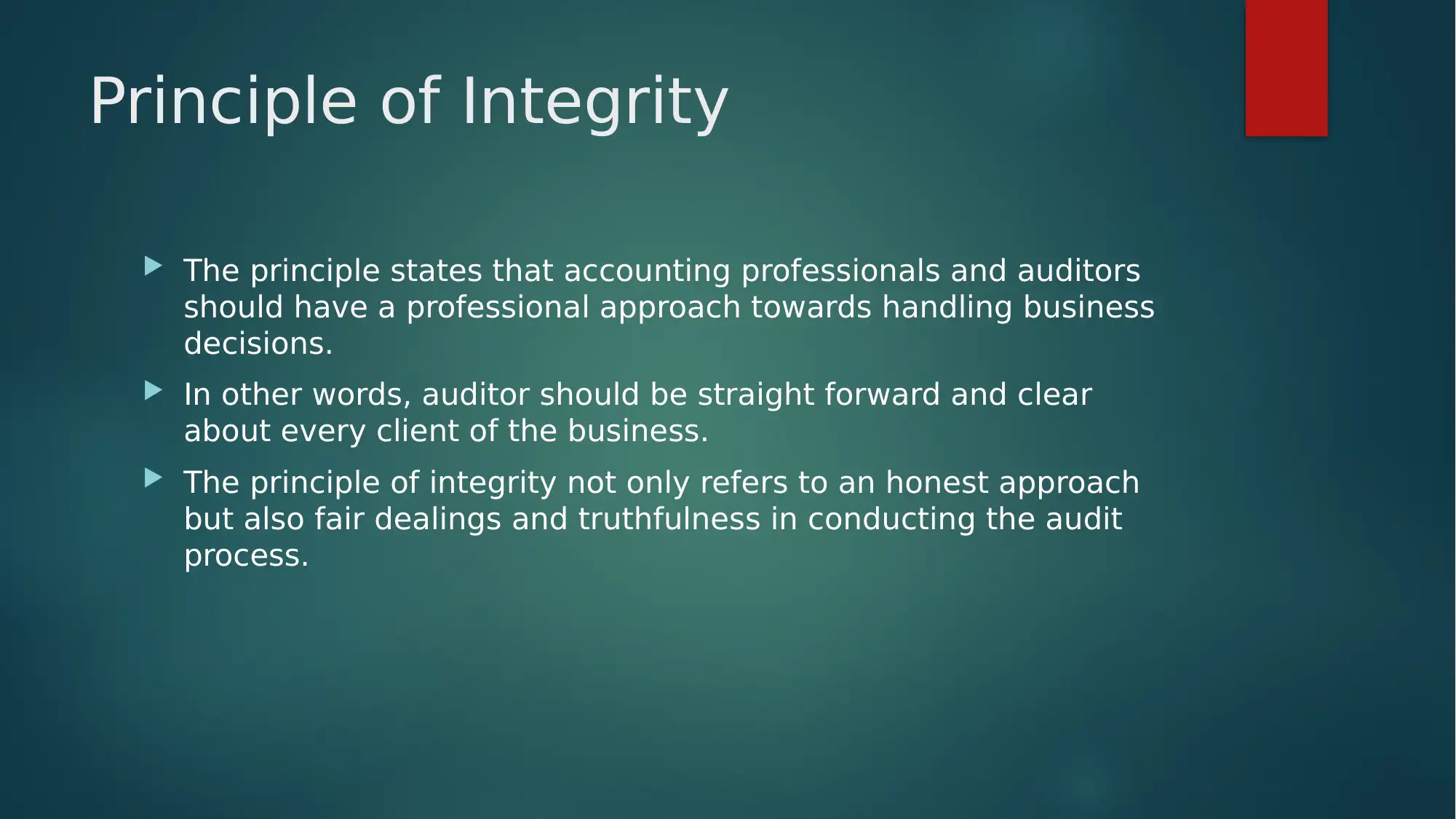

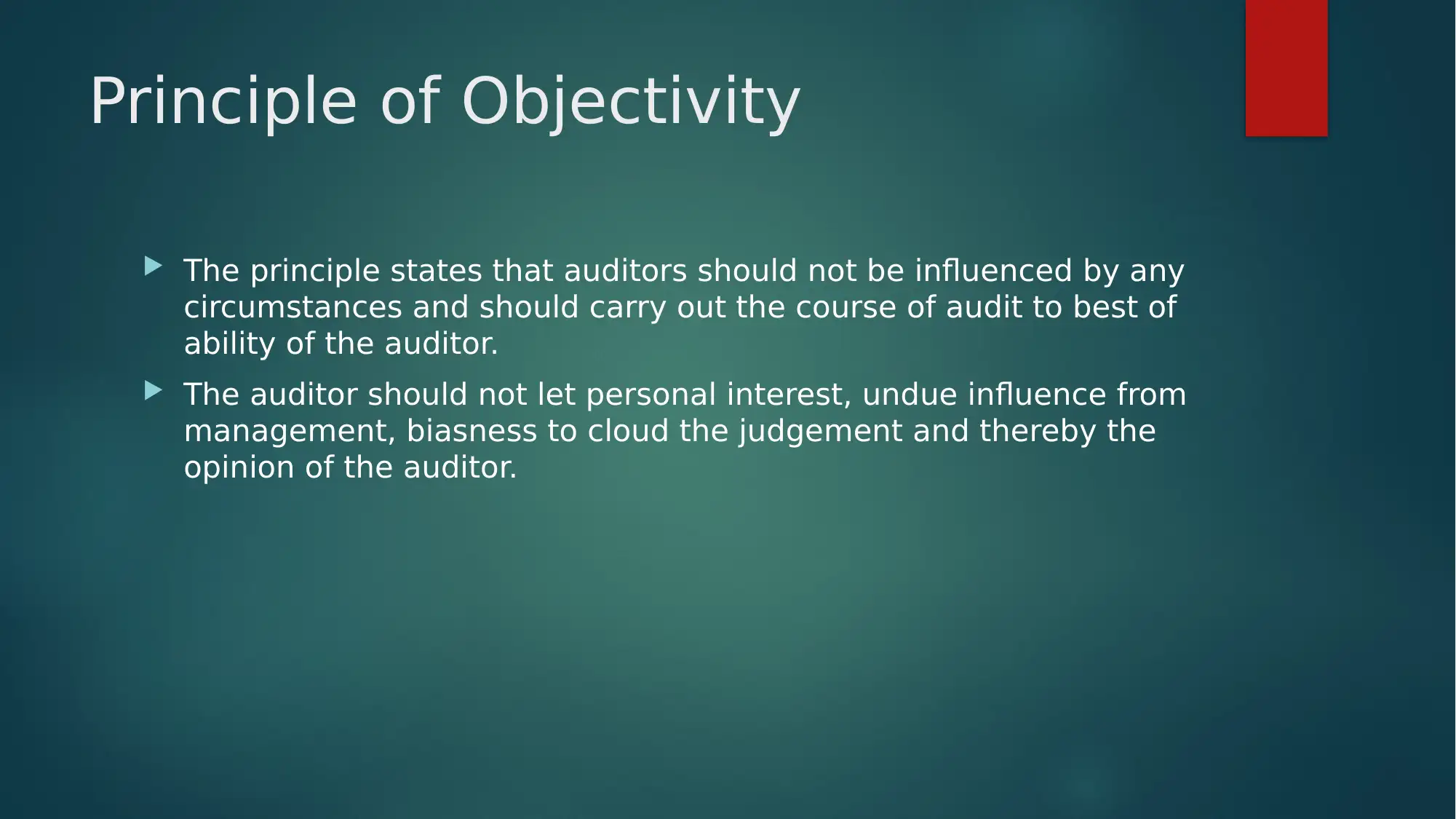
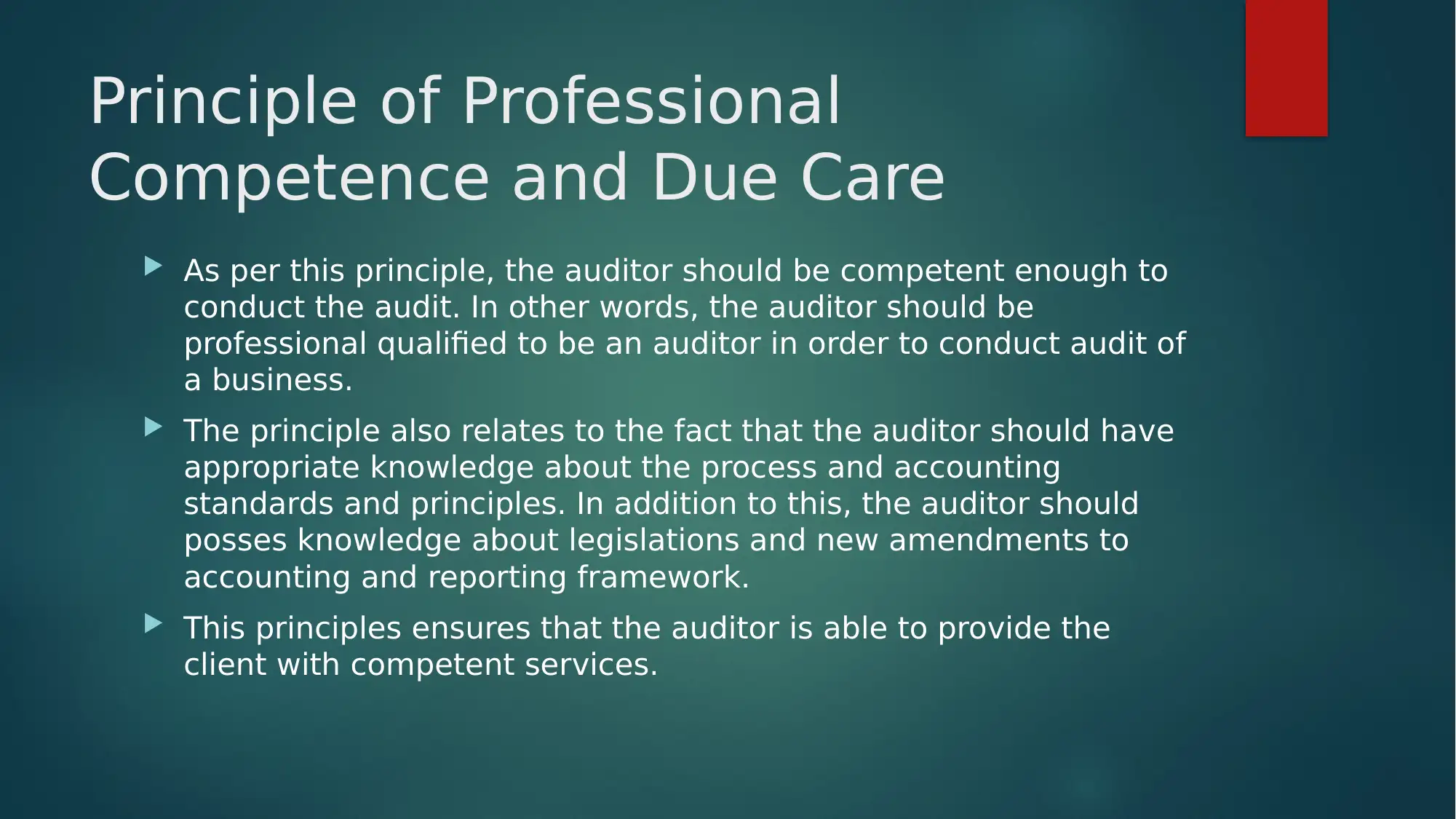
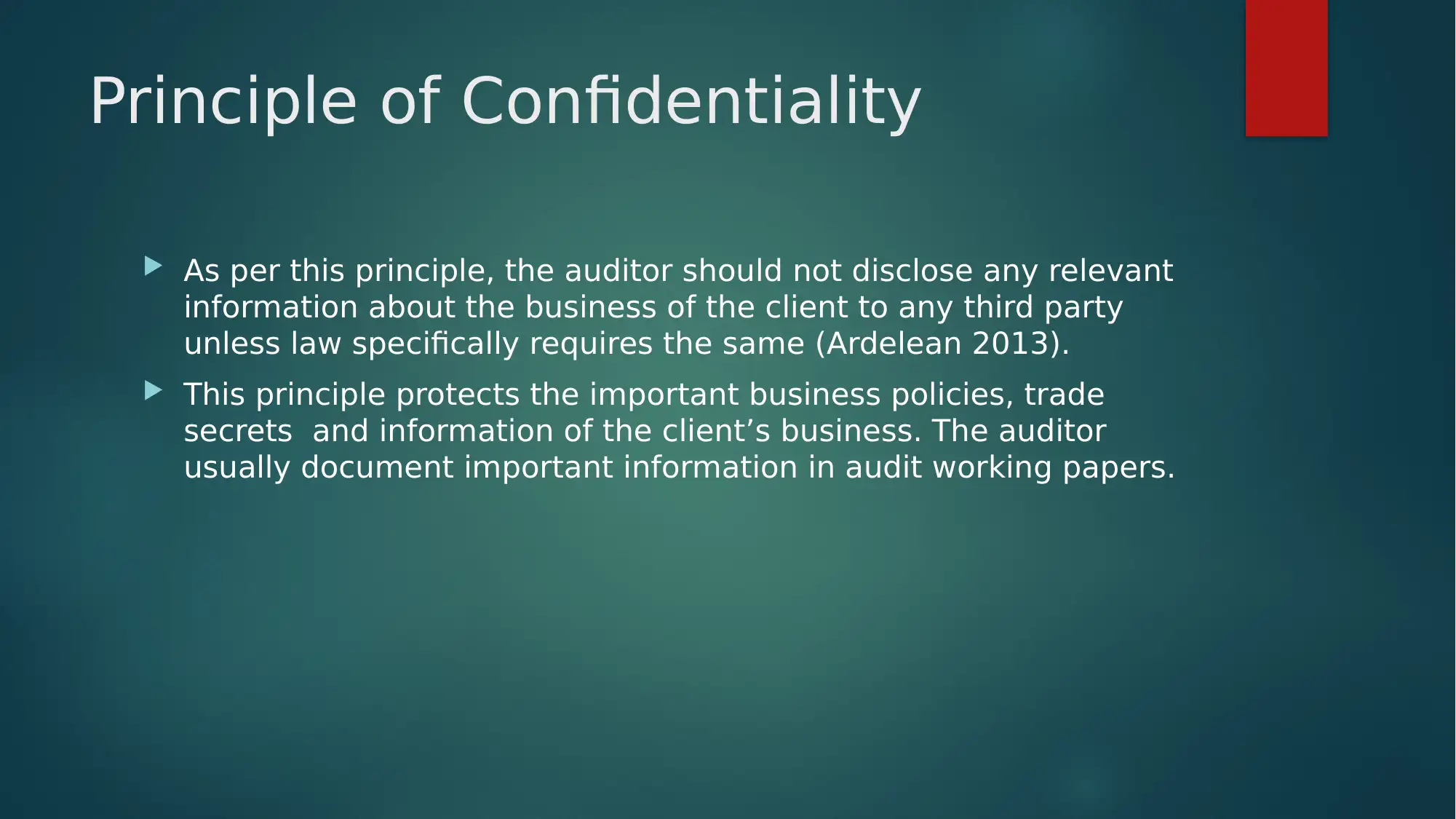
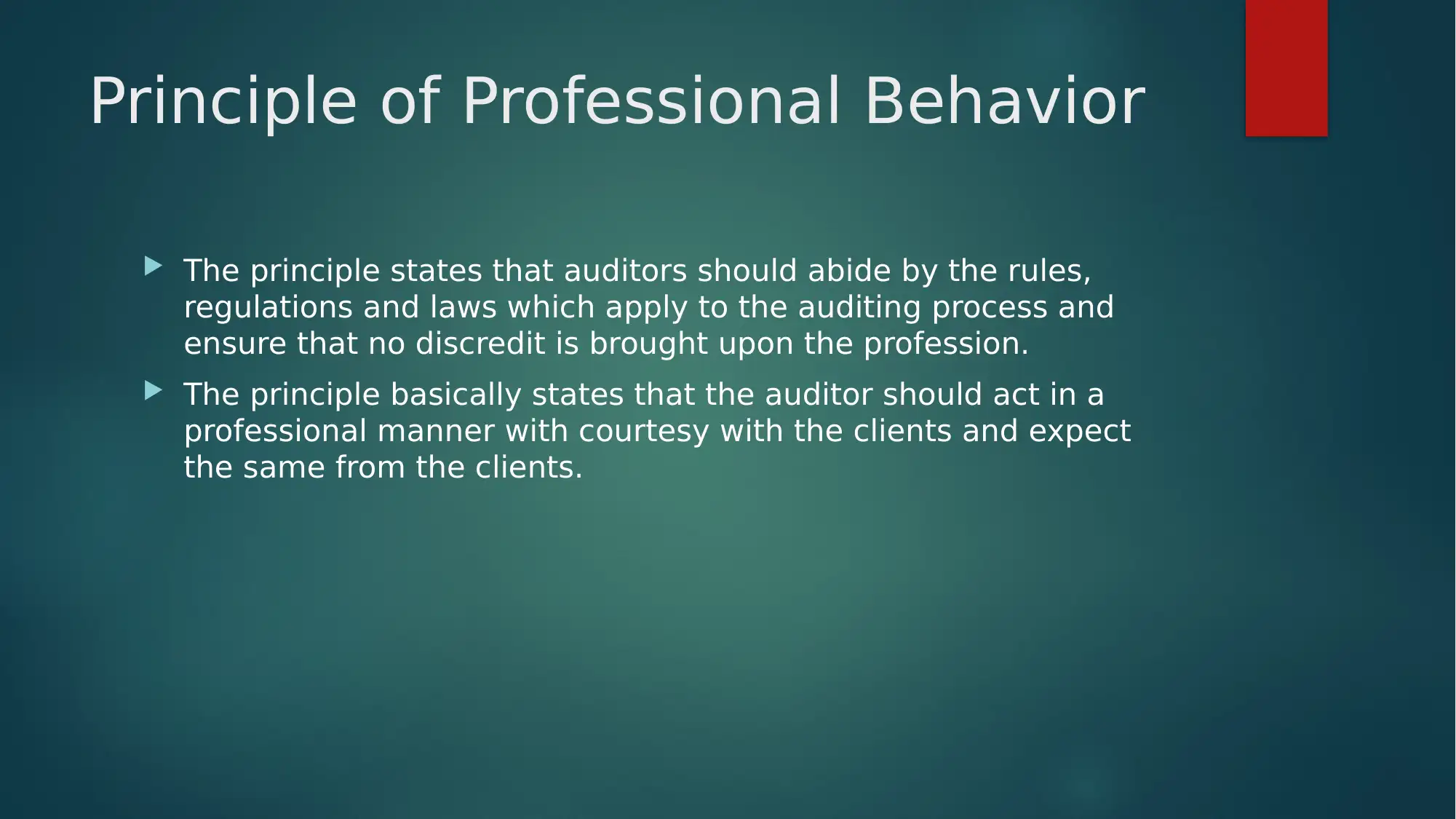
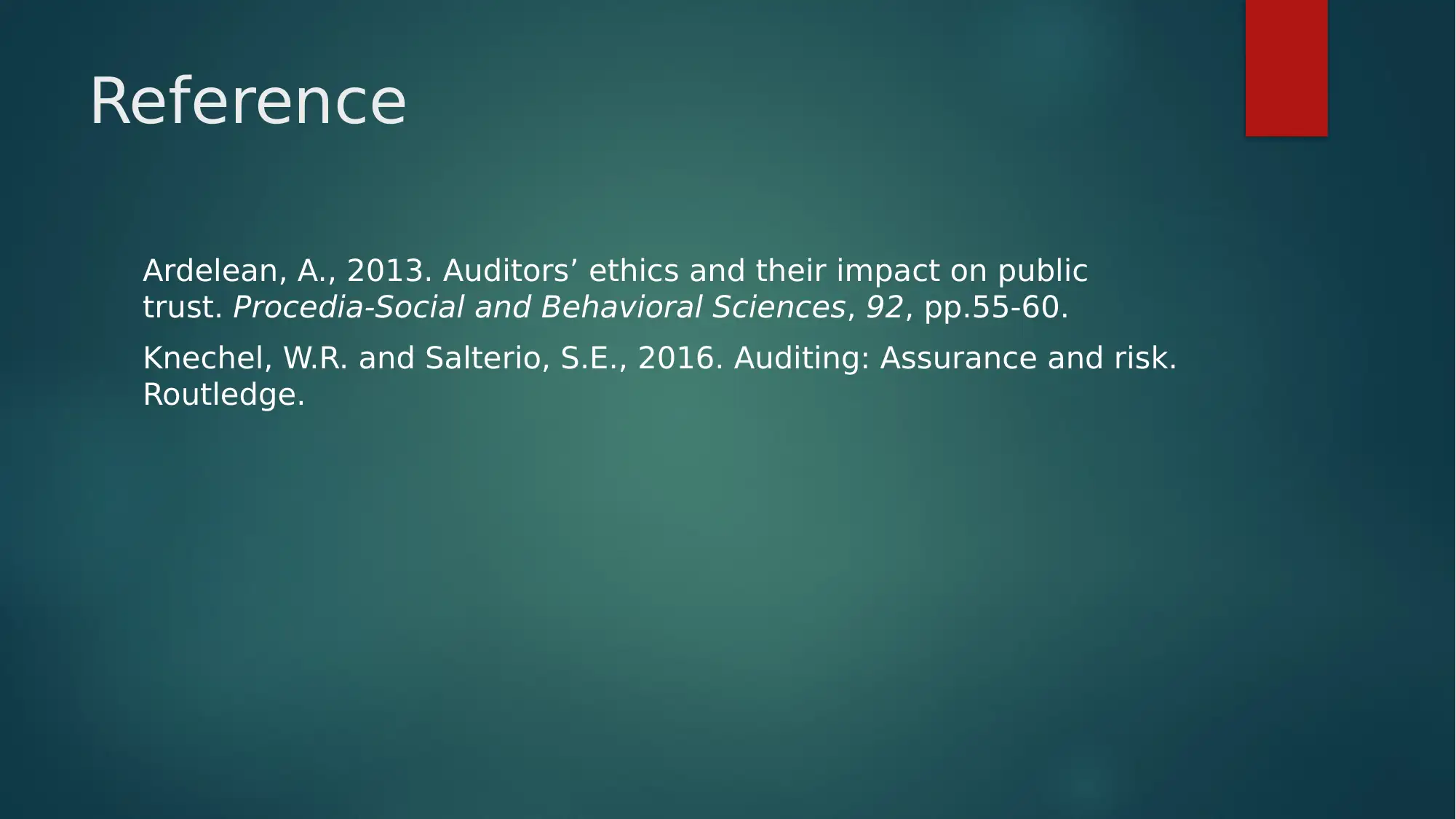







![[object Object]](/_next/static/media/star-bottom.7253800d.svg)